

TABLE OF CONTENTS TABLE OF CONTENTS




ACROSS THE LENS: STORIES OF YOU AND ME
Across The Lens: Stories of You and Me, Issue II , brings you more inspiring stories, where the interviews were conducted and stories written by our youth. This edition shares the story of a young local born who takes on the challenge to become a Chinese medicine practitioner despites of all the hardships. During the pandemic, he shouldered the responsibility of taking care of his father’s Chinese medicine clinic, managing the business and steering its future. Also, we read of a father of two children who has an impossible dream to become a musician. Knowing his limitations and barriers, he still put 120% of effort into actualizing his dream of becoming a musician. His dream gives him the power to love and care for people around him. Without any twisted plot or dramatic change, these ordinary stories show the characters of perseverance and resilience in the midst of the pandemic. Without a supportive and
community, one can hardly plow one’s way through mountain-like obstacles and achieve their impossible goals and dreams. May these stories give you a sense of hope and the power of love to walk through your valley of darkness and into a pasture of grassland.

CONTRIBUTORS CONTRIBUTORS CONTRIBUTORS


PUBLISHER ACROSS U-HUB

PUBLISHING SUPERVISOR NICOLE WONG ADVISORY BOARD MARIA YAU, NICOLE WONG EDITOR-IN-CHIEF JOEL LAM
EDITORS
GRACELYNN LAU, HOLLY DU, JENNIFER YIM, JOYCE FOK, NANCY FOK CREATIVE & PRODUCTION DIRECTOR JOEL LAM LEAD DESIGNER JOANNA NG DESIGNERS
TIFFANY ORE, VIKKIE CHEN GENERAL MANAGER TIFFANY ORE MARKETING TEAM TIFFANY ORE, NANCY FOK PLACEMENT STUDENT RODMAN THAM
OUTLOOK OF A TRADITIONAL CHINESE MEDICINE PRACTITIONER ON COVID-19
OUTLOOK OF A TRADITIONAL CHINESE MEDICINE PRACTITIONER ON COVID-19

 & WRITTEN BY Joey Lin & Jonathan Fung
& WRITTEN BY Joey Lin & Jonathan Fung
When we found out that the guest of this interview was a Chinese medicine practitioner, we expected a veteran, seasoned and senior in age. But when we met Jireh, an experienced young Chinese medicine practitioner, we were quite surprised and rather excited!

We had prepared a list of questions before the interview. And so I began by asking him how has COVID impacted his business. Responding swiftly, Jireh said that it had been a roller coaster of an experience in both his personal and working life. He had never thought a pandemic like this would happen in his lifetime, but he was willing to face it anyway. He believes that good things could be learned in adversity.
Because of my curiosity about how Jireh embarked on this career path, I had forgotten the prepared questions already. I bet he never thought about choosing this career path early on in his school life. I learned that during his undergraduate
studies, Jireh was enrolled in general science and majored in ecology and urban planning. Like many university students, he actually did not have a clear idea about a career he wanted to pursue.

Jireh did not deny that his father had a great influence on his career decision. His father is a Chinese medicine practitioner himself and runs a clinic in Markham. It seemed natural to follow in his father’s footsteps, but there were still many obstacles and challenges that hindered him from achieving his goal. One sizable obstacle was that as an English-speaking, local-born, ChineseCanadian, Jireh had to pick up Chinese, a less dominate language for him but the main language used in his profession. An even greater challenge is that even for fluent Chinese speakers, the terminologies of Chinese medicine is particularly difficult. In addition to language, Jireh also had to put a lot of effort into distinguishing the cultural differences between Canadian and Chinese. He
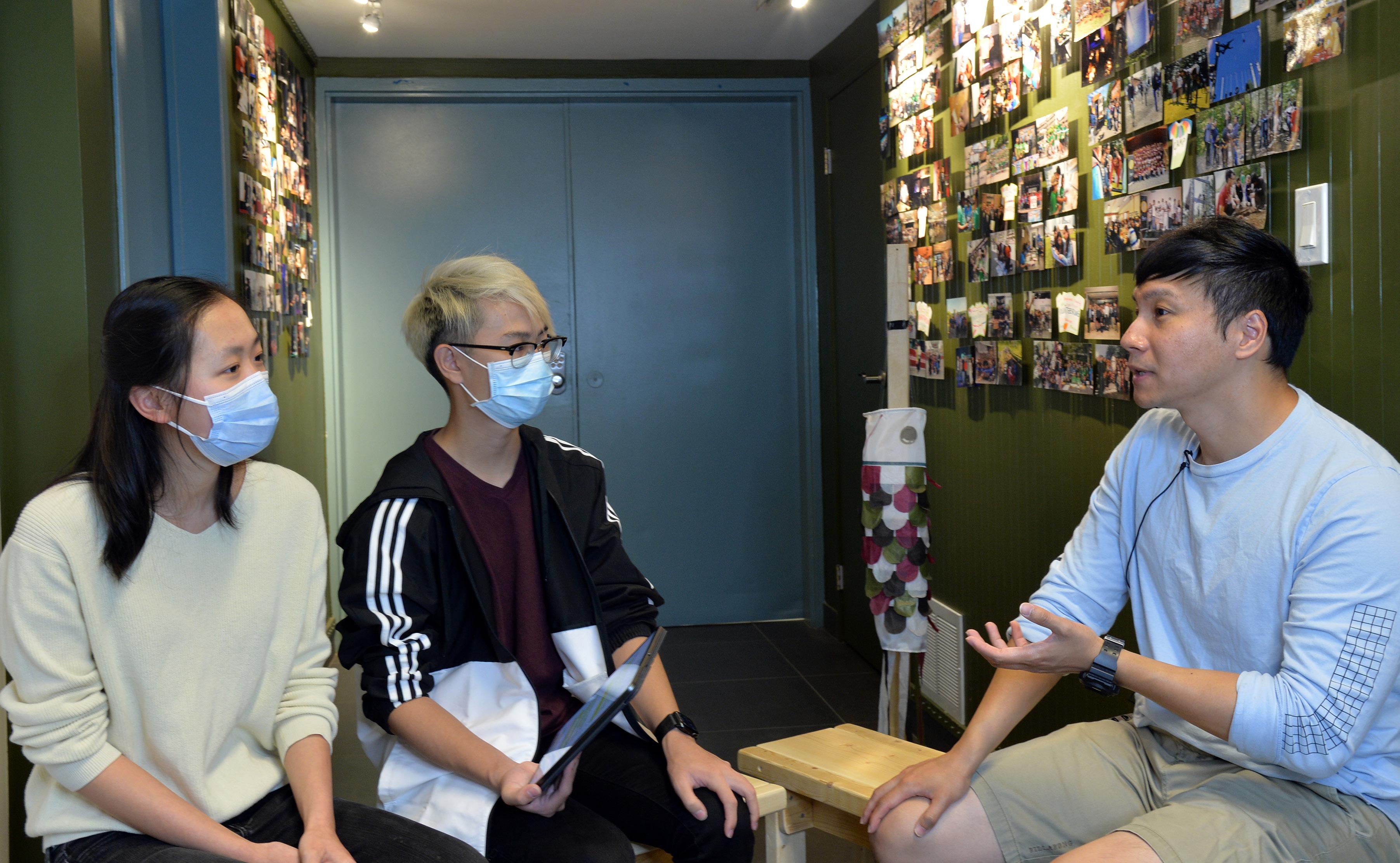
grew up unconsciously merging the two cultures together. In order to fully develop his career, he must learn both while segregating some and integrating some aspects of both cultures.
Back to the question we have prepared, “As a Chinese medicine practitioner, what have you learned or have changed during the pandemic?” Jireh paused and then said, “Being human.” We often associate the duty of a doctor to saving lives and healing the sick. Jireh said that his background allowed him to understand and feel compassionate towards everyone he meets. He said, “During this unpredictable time, I let go of the usual relationship between a doctor and a patient, and a boss and staff. We are in the same boat; we are a family. There is no hierarchy in my clinic.” To me, his response through simple phrases and simple actions reflected the charms of a great leader.
We knew COVID-19 had greatly affected Jireh’s business. He was forced to close the clinic. He also felt reluctant but had to temporarily lay off some staff. Much to his relief was that his staff was able to receive the Canadian Emergency Response Benefit while being laid off. During the period when his staff was laid off, he still kept in touch with them and maintained good friendships with them.
Although the clinic was closed, it did not stop Jireh from working. Jireh switched to an online clinic to continue his practice. And he also

continued to work alongside his father to help his clients go through this challenging time. Many clients who sought for help were not in poor physical health but were needing supports in their mental health. In one case he shared that the journey of any pregnancy is already challenging enough, but the pandemic has made expectant mothers feel all the more stressful. Some people turned to responding to COVID-19 in a negative way, which may be harmful to their mental health. Jireh said, “In those cases, the best medicine was to listen and to calm them down. It was also very helpful to pray for them upon their request.”
Similar to the challenges that Jireh had to face at work, his personal life was also affected by the pandemic. As a traditional Chinese medicine
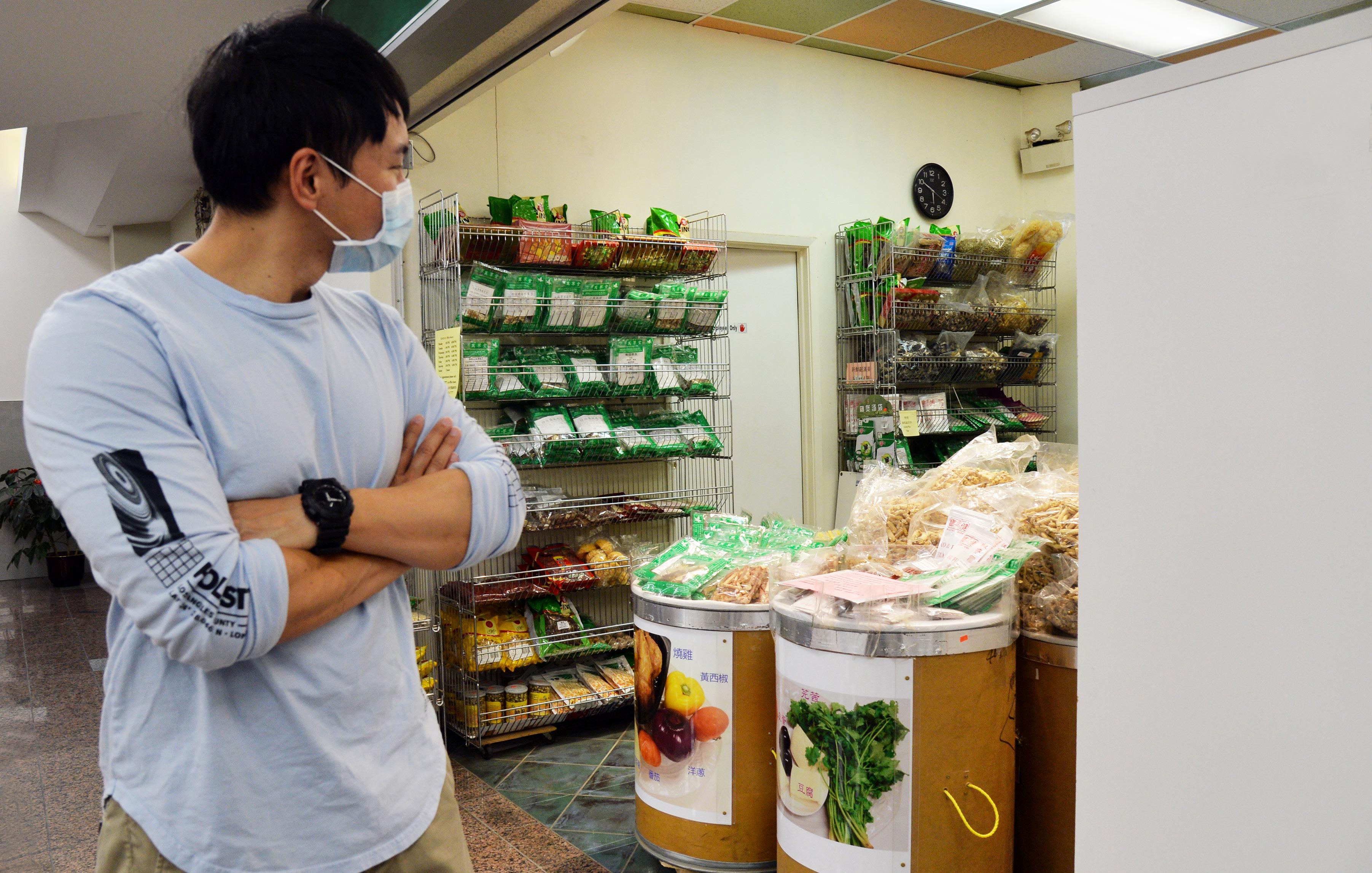

professional, Jireh understands the importance of paying attention to maintaining a good health through being physically active. However, he was struggling to keep up with his regular routine of exercise and workout as all facilities were closed. He teased himself for gaining weight during the pandemic. His mood was also being affected, like a roller coaster ride. Consequently, it had lowered his level of care and compassion for his patients and family members. Jireh took a deep breath and said, “It was not easy to meet people who were dealing with fear, uncertainty and anger every day. It was common for people to run walls but I had seen many positive ways to overcome adversity which was helpful for me to face crises that would happen again in the future.”
During this time, Jireh also learned that having solid communications with his family was tremendously helpful. Not only did it help him cope, but he learned to lean on, support each other, and stand resilient together. He was also grateful for having a strong and supportive church community. Every week, he looked forward to the virtual gatherings where he could share and find his stability and strength.
Everyone realizes the world will be different after the pandemic, so I asked Jireh what his plans were after the pandemic. He immediately became excited and said, “I cannot wait. I have many plans for the family clinic.” First, Jireh envisioned the clinic being more convenient and having friendlier

access to welcome new patients to seek traditional Chinese medicine help. He wanted to renovate, reposition and redesign the clinic to allow patients from diverse backgrounds to feel less intimidated in the space through the use of colours, words and lighting.

It is not surprising that a young man would want to pursue a bright career path. Inspired by his father, Jireh hoped to do more to further the family clinic. He anticipated with confidence that one day, traditional Chinese medicine would be an important part of life in Canada and more people would seek the knowledge and help from traditional Chinese medicine. With his bi-cultural background, he can foresee the importance of his unique cultural status in becoming a bridge between Chinese and Western medicine. As he shared this with me, I could see the brilliance of hope through his eyes.
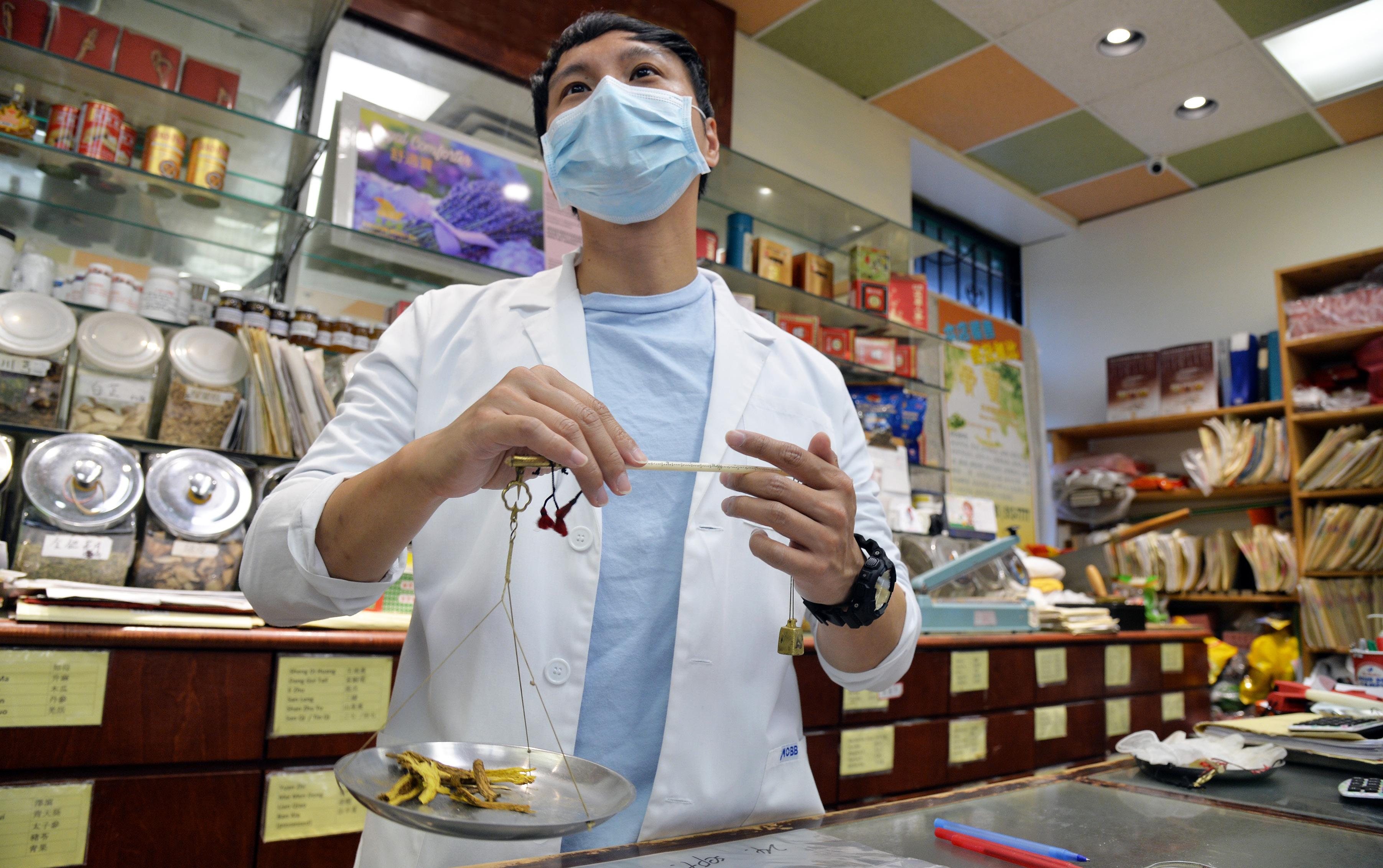
At the end of the interview, Jireh gave us his powerful and sincere advice. He said,“Keep our heads above the water and keep a positive outlook in life during the pandemic. Try to find ways to reach out the community. Continue on and look forward to tomorrow. See what you can do for others because it’s happier to give than it is to receive. Not only is it about helping others financially but get yourselves involved in the lives of others and you may find that you can help them in many aspects. By helping others, you find greater purposes in your own life.”
Jonathan Fung
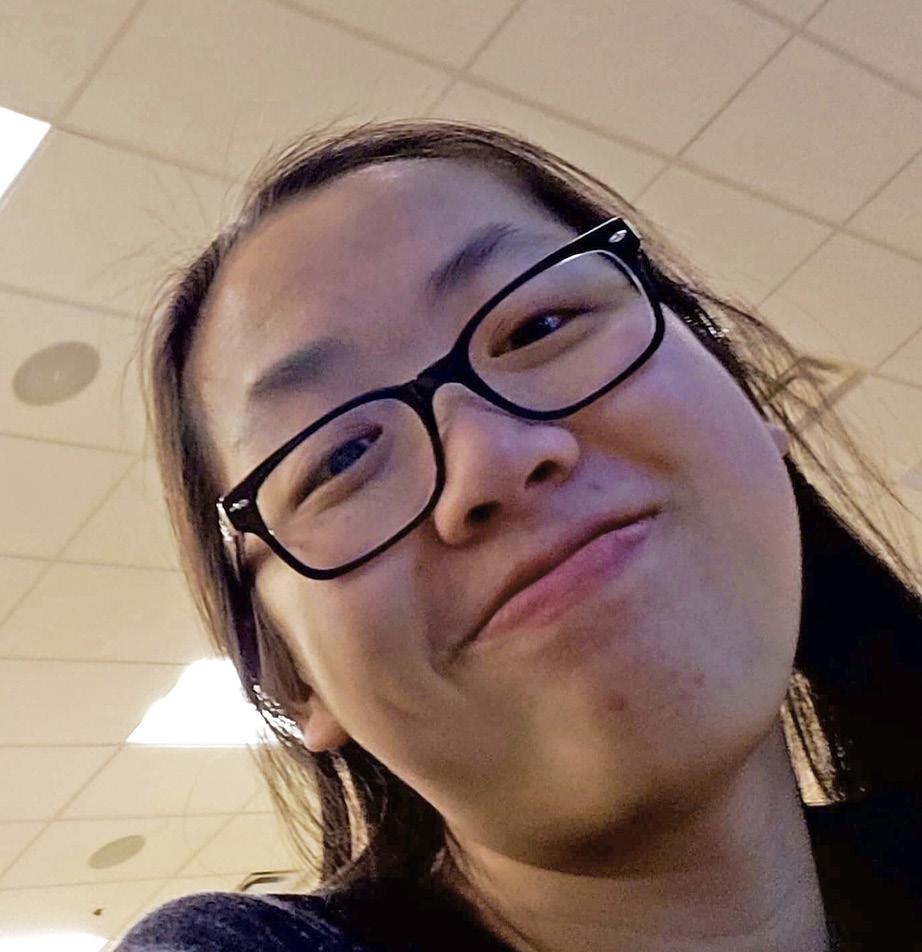
I learned how to be compassionate to others. He allowed me to view the effects of the pandemic on different people in another way.
Joey Lin


I was inspired by his attitude toward the pandemic as it is different from most people.











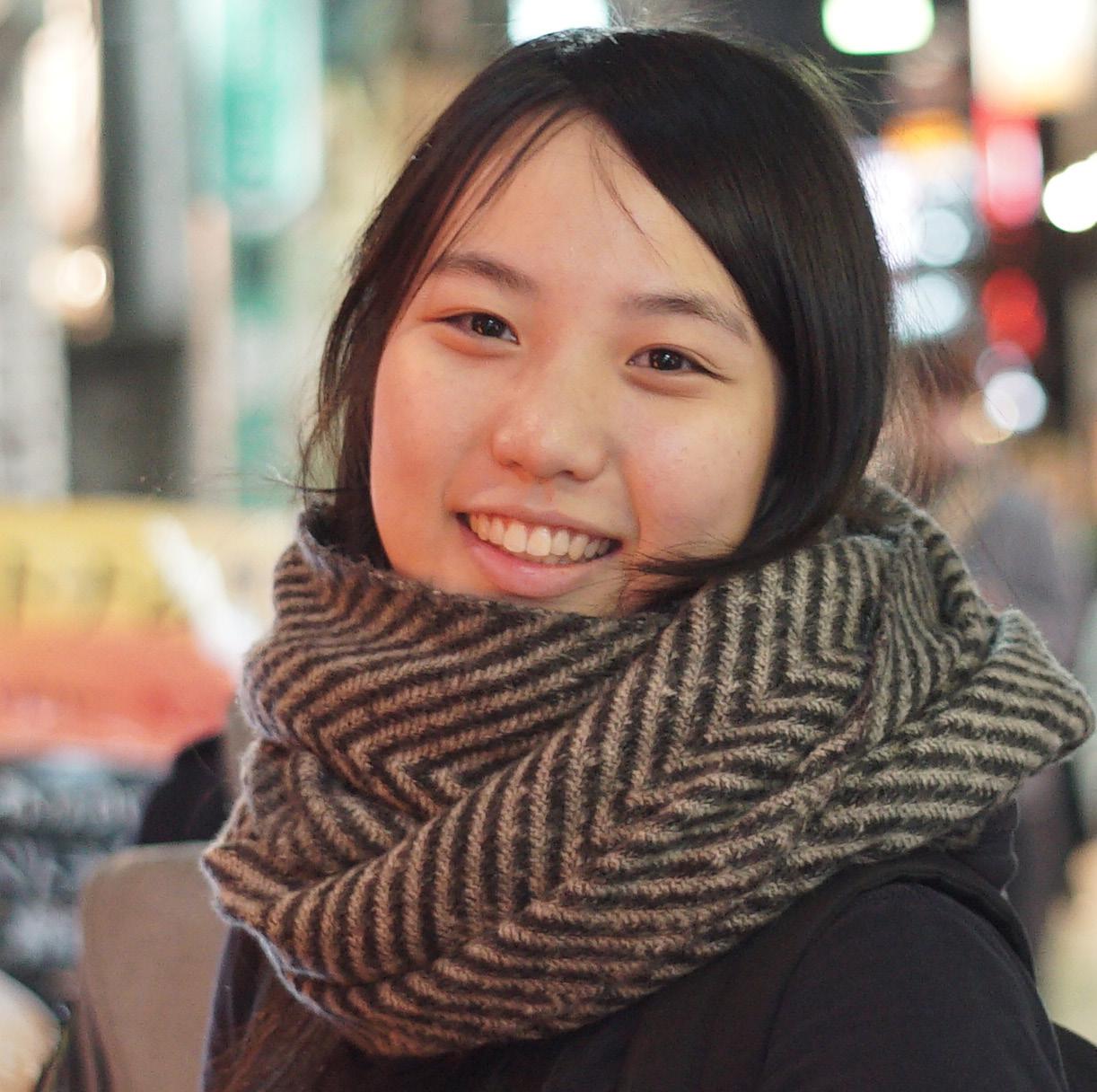
HUMAN TOUCH, AN INEVITABLE PART OF CHINESE CULTURE HUMAN TOUCH, AN INEVITABLE PART OF CHINESE CULTURE
INTERVIEWED & WRITTEN BY Evita Lai & Tiffany Ore TRANSLATED BY Celeste Cheung
My father is a restaurateur and the image of him being a decisive and meticulous boss has always been deeply impressed in my heart ever since I was little. The guest I interviewed today is Canson, who is also in the restaurant business. This gave me an opportunity to look at it from another perspective, to see that owners can also have an easygoing and caring side.
Soon after Canson came to Canada as a 15year old international student from Hong Kong, his family ran into financial difficulties. Luckily with the help of a family member, he was hired at a restaurant which helped him to make ends meet while studying. Little did anyone know that this laid out the foundation for his future aspirations in the restaurant business. Today, Canson has become the owner of a high end Chinese restaurant in downtown Toronto.

Nobody was prepared for the COVID-19 pandemic. Looking back at the past 25 years,

the restaurant industry was faced with many challenges, such as the SARS outbreak and Lehman crisis in 2003 and 2008, respectively, but it has still managed to quickly recover. Canson initially thought that this pandemic was going to be similar to SARS, and that it was just going to affect us for two to three months. When the first lockdown occurred, he felt like he had entered into a dark tunnel with just a faint light at the end, but when the second one approached, he became increasingly worried as he continued to hear news about restaurant closures. Recently, he learned that a Thai restaurant that had been in the business for nearly 40 years decided to close its doors. Discouraged by similar news, Canson was wondering how many restaurateurs would be able to survive through this pandemic.
During this time Canson had lost a lot of business. I asked him, “Have you thought of temporarily closing the business until the pandemic is over?” I thought he would say that he didn’t want to lose the efforts he had put, or that he would consider the financial losses, but his response to me was, “Closing down the business would have been an easy way, but when I think back to when I was younger and facing financial difficulties, I could not forget how I got out of the crisis with the help of the family. A lot of the staff are Chinese immigrants, and because of their limitations in language and other skills, losing their job would really impact their ability to make a living. Getting

financial support from the government isn’t a long term solution, and having less income and losing their job for a long time would force them to change careers. Many families would be impacted and everyone has a family to take care of. Since my staff has worked for us for many years, we are all like a family.” Canson thought that it was important to support each other in times of crisis and has chosen to continue operating the business. He carefully listened to each and every one of his staff’s needs. When he learned that they were struggling with rent and mortgage payments, he helped support them out of his own pocket. Just like how the family had given him a job when he was younger, he wished that a restaurant could be a place to bring everyone together.
My image of a boss is that they are usually calm and rational, but Canson displays an emotional side as well. It’s a hope for every businessperson to earn a profit, but Canson has demonstrated


deep kindness by treating his staff as his own family. Just like a plot out of an old Chinese drama, the “human touch” is an inevitable part of Chinese culture. In Canson’s perspective, the expression, “business is business” is a kind of responsibility. His staff was deeply moved and worked hard to respect their own duties. Despite the pandemic not being over, and the problem hasn’t been resolved, Canson has chosen to look at this on the positive side. For example, it allowed him to spend more time with his family, which is a hope among many of those in the restaurant industry.

Canson’s story gives me a lot of room to reflect, especially on resilience. Resilience can be defined as the strength to recover, and it’s one of Across U-hub’s frequently discussed topics. I also learned the same thing in university majoring in ecosystem courses.

When I look at Canson’s past experience and compare it to that of the people our age, I am reminded of the habits of our young generation. Our parents’ generation would be able to stand back up after a challenge, but a habit of ours is that we choose to avoid the challenge before it even happens. Most of the people in our generation are living in comfort and have not experienced a low point in life; we stay in our comfort zone and choose to not face the challenges in times of crisis. Having choices and having the ability to simply avoid is viewed as a ‘privilege’ among youth. In reality, this privilege was diligently earned by our elders to give us a better starting point in life, so how can we let it go to waste?
Canson encourages the younger generation to have courage in pursuing their dreams, especially those who wish to pursue a career in restaurant ownership.
I realized that people were happy when asked about their personal stories and I was a little curious to hear the stories of my parents and other family members.


Their businesses may have gone through a lot of ups and downs, but one common theme was that nothing could compare to the impact brought on by COVID-19.
 Tiffany Ore
Evita Lai
Tiffany Ore
Evita Lai
JONATHAN FUNG JONATHAN FUNG


VOLUNTEER SHARING
During my short time in Across U-hub, I have learned the importance of unity in times of hardships. During my interview with Jireh, I learned how to be compassionate to others. He allowed me to view the effects of the pandemic on different people in another way. He taught the importance of controlling one’s behaviour especially in front of those that cannot control theirs. In addition, through the various online workshops that were held, I learned different skills such as interviewing skills and communication skills that could be essential in the future. Furthermore, the skills and people that I met so far are priceless and will definitely aid me for many years to come. How the situation is much more devastating than I thought. The interviews have really pushed me to reflect on my current behaviours, and has encouraged me to believe that even as an individual, I can make a difference.



EVITA LAI EVITA LAI EVITA LAI
 VOLUNTEER SHARING
VOLUNTEER SHARING


Interviewing somebody was somewhat intimidating for me, and I definitely did not do the best job in interviewing. However, I am personally happy with having the conversations I had, because I felt how open people were to share their experiences with me. I realized how people could be happy for being asked their personal story, and I am a little curious to hear the stories of my parents and other family members. In fact, I actually did have the chance to have a conversation with my aunt, I heard her story while brainstorming questions for one of the interviews.
Throughout the interviews, I was not only able to relate myself with the interviewees and learn practical skills from them, but more importantly I realized the significance of empathy when we are dealing with people. The people I interviewed had different backgrounds, jobs, and unique experiences of their own. Hearing these first-hand experiences actually allowed me to empathize more with the people I meet, whether they be
people I just met, have known for quite some time, or even people passing by. The fact that everyone is going through something, good or bad, highlights how empathy is associated with communication in me. Having to know what kind of struggles people had during the pandemic also gave me a greater understanding of what kind of an issue our society is facing currently.
 Nicole Wong 黃鳳玲 Across U-hub Executive Director
Nicole Wong 黃鳳玲 Across U-hub Executive Director
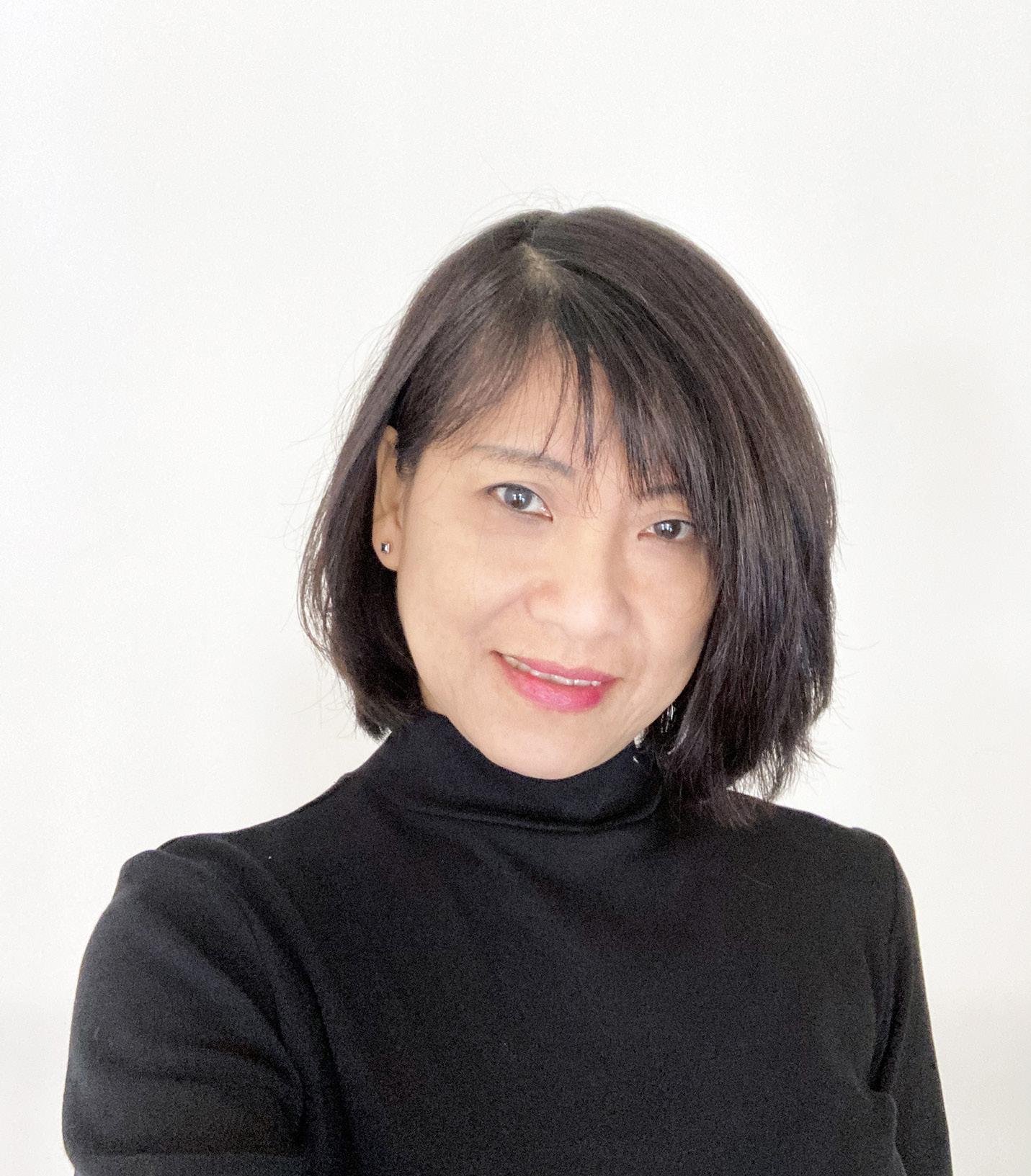
The purpose of the stay-at-home order is to reduce the spread of the pandemic. It is not to prevent us from developing meaningful connections and friendships. In fact, the stayat-home order further proves the importance and necessity of communication and connection between people. In these unprecedented times, we need to be there for each other through motivations and caring words or actions. We decided to continue publishing “Across the Lens: Stories of You and Me” as a way of staying connected. Each of the stories, written with our hearts in hopes of delivering the messages of the protagonist and the youth into your lives. As you read these stories, we hope that you will find resonance, comfort, and friendship.



Tips for 2021 Goal Setting @ Across U-hub 1
E x p l o r e t h e h i d d e n t r e a s u r e s o f m y n e i g h b o u r h o o d M a k e a d i f f e r e n c e i n m y c o m m u n i t y R u n n i n g f o r w a r d t o b u i l d u p m y p e r s e v e r a n c e S p r e a d p o s i t i v e e n e r g y t o m y c o m m u n i t y J o i n t h e l e a d e r s h i p t r a i n i n g t o



i d e n t i f y m y p o t e n t i a l s
H a v e y o u s e t y o u r g o a l s f o r 2 0 2 1 ?
